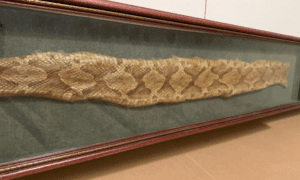Lent began last week with the observance of Ash Wednesday. Lent is often thought of as a time to temporarily give up something. Chocolate perhaps. Or smoking, eating too much, cursing, wasting time, or some other undesirable habit.
It is also seen as a time to embrace good practices as well. Determining to be kinder, to be more faithful to church, begin regular Bible reading, pray more, and such. Lent is seen as a season of repentance as Christians prepare for the season of Easter.
But Lent is also about mortality. It is a reminder of death. In church that practice the imposition of ashes, where the priest or pastor makes the sign of the cross on the forehead during Ash Wednesday, he may say, “You are dust and to dust you shall return.”
It is a stark reminder that life is running out. One more day has slipped through our grasp. However young or old we are, we are one day, one step, closer to dying. It is a sober and somber beginning the 40-day (excluding Sundays) journey through Lent.
The first time I had ashes imposed, I didn’t think much about the words that were spoken. I understood the meaning but the impact was minimal. As I have gotten older, the impact has been more substantive. I have seen more death with each passing year and, with each passing year, I get closer to my own.
Also with getting older comes the officiating at ever more funerals. I can’t even begin to estimate the number of times that, as earth is placed upon the coffin at the cemetery, I have spoken these words:
In sure and certain hope of the resurrection to eternal life through our Lord Jesus Christ, we commend to Almighty God our brother (or sister) and we commit his body to the ground; earth to earth, ashes to ashes, dust to dust. The Lord bless him and keep him, the Lord make his face to shine upon him and be gracious to him, the Lord lift up his countenance upon him and give him peace. Amen. (1979 Book of Common Prayer)
The words spoken at Ash Wednesday are done so, not with the purpose of being morbid or frightening, but for us to consider the days that remain. Psalm 90:12 says, “So teach us to number our days, that we may present to You a heart of wisdom.”
Yet, most people simply go through one day and then another without giving any thought that the sands in the hour glass are surely but steadily running out. If we did “number our days,” especially if we could know how many days were left to us, would we live differently?
I once knew a woman who had a mother who could be “difficult.” As she got older, she became kinder, more considerate, even mellow (which was quite the change). I commented on that observation to the lady I knew who said, “Well, as mother has aged and gotten closer to death, it’s probably influenced her thinking and her actions.” I added, in my head, “Maybe she’s concerned about what God would say to her about the way she has treated people.”
Reflection can be a good thing. Especially if that reflection leads us to living a better life. I once heard someone say, “I will never forgive him! I will hate him for the rest of my life and I hope he rots in Hell.” What a bitter, soul-killing, unfruitful way to live out each day! Would it not be better to remember that our days today are fewer than they were yesterday and that each day remaining can be lived to the full?
Years ago, an older man gave me some advice. He said that I need to “keep short accounts.” By this, he meant that I should forgive those who wronged me as quickly as possible, repent of any committed sins as quickly as possible, and restore lost friendships and relationships as quickly as possible. Keep short accounts. Don’t let them accumulate interest to the point we can never be free.
I know a man who has been bitterly estranged from a parent. They haven’t spoken in over a decade although they live in the same town. At some point in time, one of them will die and it will be too late to make things right and the likelihood is that the one who survives will live with the guilt and regret until the end of their days.
Lent reminds us that there is, indeed, an end to our days and that we should number those days and live in a way that squeezes every moment out of each day. It is also a reminder that, at the end of those days, we will stand before and give an account to God.
The other phrase used at the imposition of the ashes is, “Repent, and believe in the Gospel.” That is also something to ponder as we self-reflect. Are we living, not just a full life, but a worthy life — a life pleasing to God? The opportunity to do that is also running out with each day that passes.
One way of receiving all this is to imagine the priest or pastor saying, “Hey! Time’s a-wasting! Is this really the life you want to live? That which God expects you to live? Is this a good way, a worthy way to live? If all the other people lived the way you live, is that a good thing or a bad thing? You’re going to be dead sooner than you think. So, get busy. Get right with God and your fellow humans. Love more, forgive all, embrace God, be kind, and be the man or woman you really want to be. Time’s a-wasting but you still have some time. Don’t waste any more of it. Go and live — really live — your life”
[David Epps is the pastor of the Cathedral of Christ the King, 4881 Hwy. 34 E., Sharpsburg, GA between Newnan and Peachtree City (www.ctk.life). He is the bishop of the Diocese of the Mid-South which consists of Georgia and Tennessee and the Associate Endorser for the Department of the Armed Forces, U. S. Military Chaplains, ICCEC. He may contacted at [email protected].]











Leave a Comment
You must be logged in to post a comment.